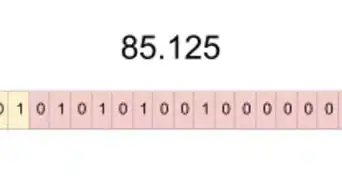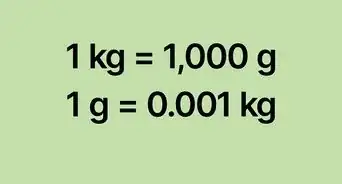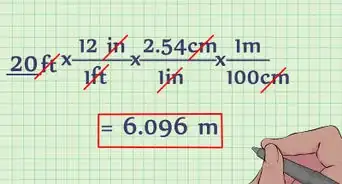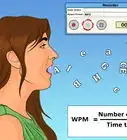X
This article was co-authored by wikiHow Staff. Our trained team of editors and researchers validate articles for accuracy and comprehensiveness. wikiHow's Content Management Team carefully monitors the work from our editorial staff to ensure that each article is backed by trusted research and meets our high quality standards.
This article has been viewed 70,011 times.
Learn more...
Converting meters to yards is as simple as plugging a number of meters into a simple multiplication problem. This works only if you know that the conversion rate is 1 meter to 1.0936 yards. Even if you don't have a calculator, however, this is a particularly easy conversion to estimate.
Steps
Method 1
Method 1 of 2:
Quickly Converting
-
1Note the number of meters you want to convert. A conversion from meters to yards is nothing but a simple multiplication operation. All you need to do is start with a number of meters.
-
2Multiply the number of meters by 1.0936 to get the number of yards. There are 1.0936 yards in every meter. So if 1 meter is 1.0963 yards, then 2 meters is 2.1872 yards, and so on. You could keep adding 1.0936 yards for each additional meter, but the easiest way to do it is by multiplication:[1]
- For example, convert 12 meters into yards.
Advertisement -
3Provide your "units" at the end to complete the problem. In the example, you determined the answer was "13.1234." But on a test or a project you need to be sure to answer the simple question, "13.1234 of what?" The answer, of course, is 13.1234 yards, but don't forget to add these units to get full credit.
-
4So to convert 12 meters into yards, multiply 12 meters by 1.0936 yards per meter.
-
5Use more or fewer decimal places to get a more precise or less precise answer. The formula "1 meter = 1.0936 yards" is just an approximation. The most accurate conversion factor is an infinite string of numbers. The more decimal places you use, the more precise the conversion will be. However, it would be a rare case where four decimal places wouldn't be enough. For example, you could also use the following:
- Rough Calculation: 1 meter = 1.1 yards
- Fairly Precise Calculation: 1 meter = 1.0936 yards
- Extremely Precise Calculation: 1 meter = 1.0936133 yards[2]
Advertisement
Method 2
Method 2 of 2:
Estimating Without a Calculator
-
1Get used to the idea that for estimation purposes 1 meter = 1.1 yards. As noted above, the actual conversion is closer to 1.0936 yards, but you can round this number up slightly to make it easier to calculate by hand. While 1.1 slightly exceeds the actual conversion, it is only by .0064 yard -- not enough to throw off a basic estimation.
- Though this method is close, remember that your estimation will be slightly larger than the actual conversion.
-
2Write down the number of meters followed by a plus sign. Meters and yards are almost the exact same length. The difference is in the .1, which is easy to calculate. Since anything multiplied by 1 is itself (), all you need to do is find the .1 portion and add it to the number of meters.
- For example, estimate the number of yards in 15 meters.
- 15 meters = 15 yards + ?
-
3Multiply the number of meters by .1. Do this by moving the decimal point one place to the left. Simply take the number of meters and shift the decimal point one place to the left -- this is the exact same thing as "multiplying by .1" So in this example:
- Estimate the number of yards in 15 meters.
- ?
-
4Add the new number to the original number of meters to get your final answer. The only math you have to do at this point is some quick addition. Once you've moved the decimal point over, add this new number to the original number of meters. For example:
- Estimate the number of yards in 15 meters.
- ?
-
5Consider subtracting your overestimation for an even more precise estimate. The actual conversion of 15 meters is 16.4042 yards, meaning the estimation was only about .1 yard off. Note that the overestimation will get bigger if you're working with bigger numbers. 150 meters would be estimated at 165 yards, and that's 1.6 yards too high. A good way to eliminate this over-estimation is to subtract .1 yard for every ten yards:
- In the first example, you have 16.5 yards. To correct it, you can subtract .1, because there is only one "10" in 16. Your final estimation would be 16.4 yards.
- For the bigger example, you'd subtract 1.6 yards, because there are sixteen "10s" in 165. The estimate this time would be 163.4 yards.[3]
Advertisement
Community Q&A
-
QuestionWhich one is greater: a yard or meter?
 DonaganTop AnswererA meter is slightly longer than a yard.
DonaganTop AnswererA meter is slightly longer than a yard. -
QuestionHow do you calculate how many yards is in 220 meters?
 Community Answer1 meter is equivalent to 1.0936 yards. To find how many yards are in 220 meters you would multiply 220 x 1.0936. The answer is 240.592 yards.
Community Answer1 meter is equivalent to 1.0936 yards. To find how many yards are in 220 meters you would multiply 220 x 1.0936. The answer is 240.592 yards. -
QuestionIf someone ran 9.5 seconds for 100 yards, what would the seconds be for 91.44 meters?
 DonaganTop AnswererAs you are probably already aware, 100 yards is the same as 91.44 meters.
DonaganTop AnswererAs you are probably already aware, 100 yards is the same as 91.44 meters.
Advertisement
References
About This Article
Advertisement
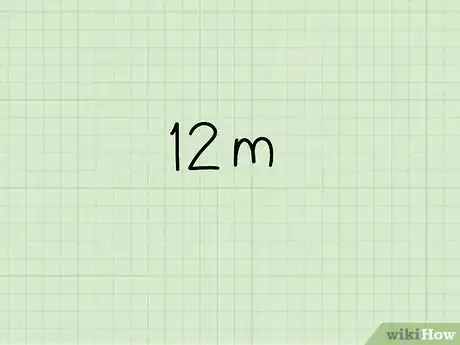
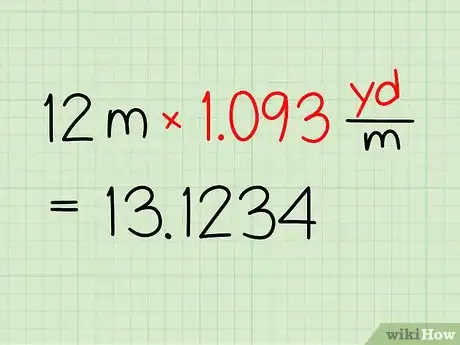

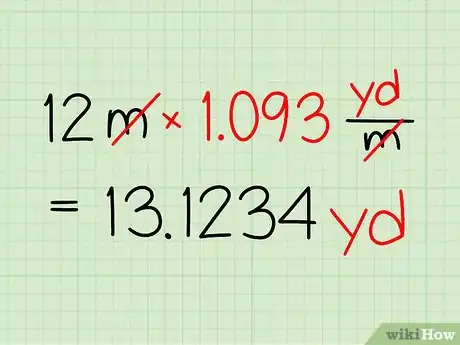
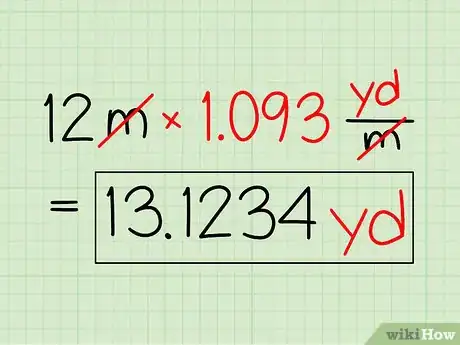

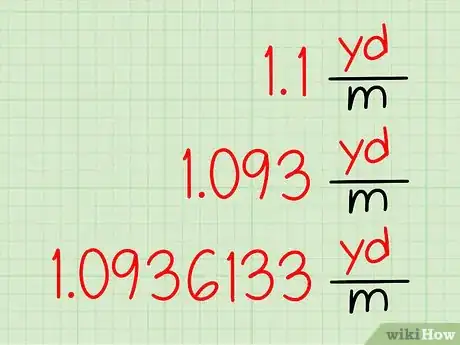
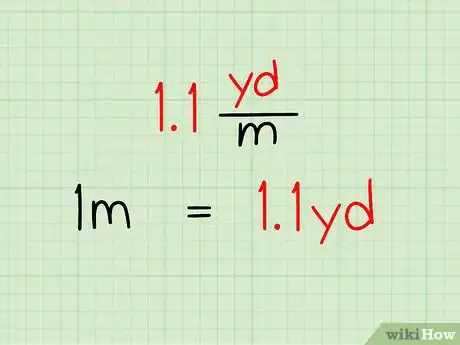
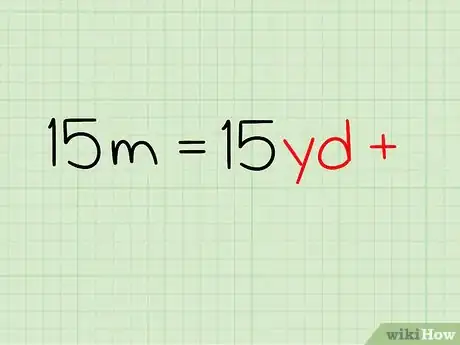

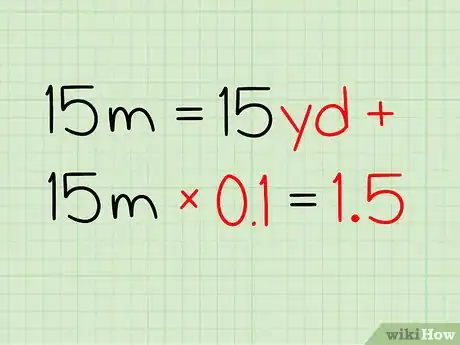


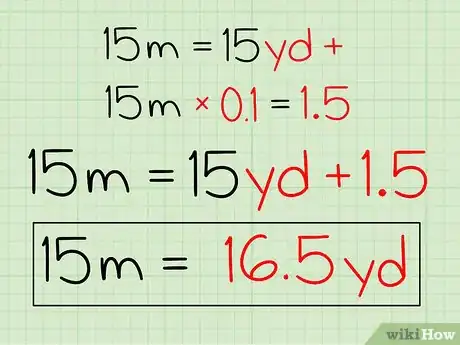


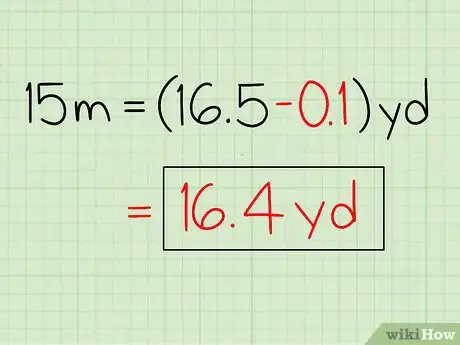


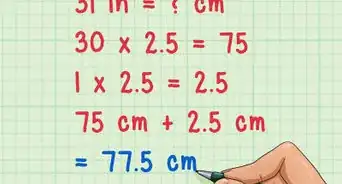

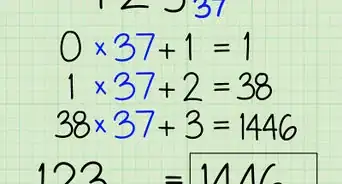
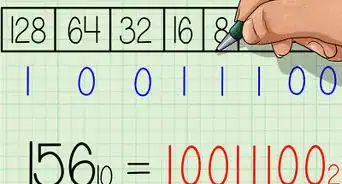
-to-Grams-(g)-Step-8-Version-5.webp)
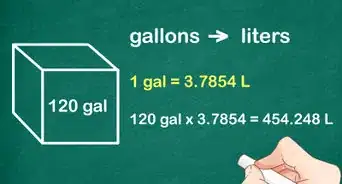
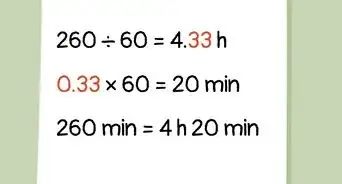
-to-Fahrenheit-(°F)-Step-6-Version-2.webp)
